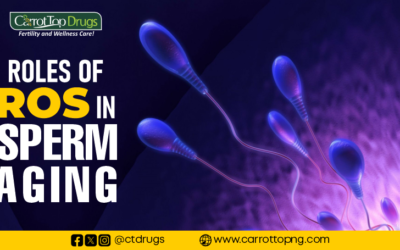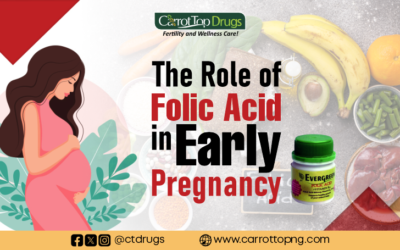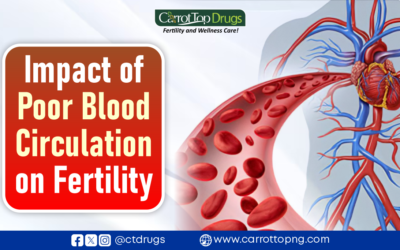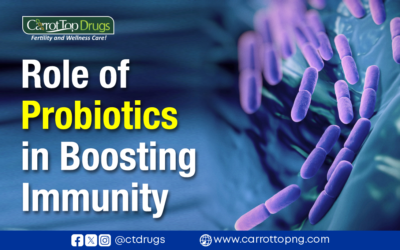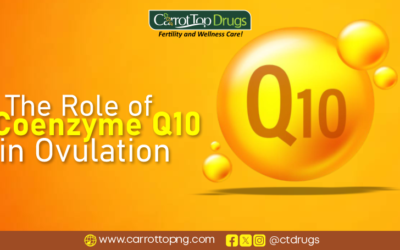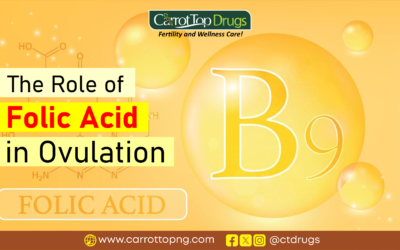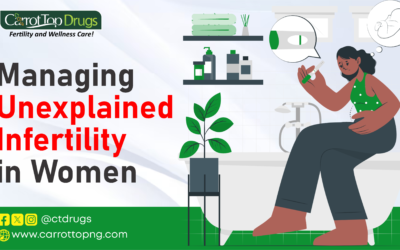In the past few decades, we have seen a tremendous amount of information about the subjects of fertility and infertility. Nigeria also has started to embrace what medical scientists and practitioners have discovered about the subject matter.
What Exactly Have Nigerians Embraced?
What Nigerians are starting to grasp is that infertility is not caused by only the female or in this case – the wife. When infertility is concerned, both parties should be tested to discover what exactly could be the factor.
Now that that is out of the way, let us rightly define what Infertility is.
What is Infertility?
Infertility is defined as the medical condition where a couple who have unprotected sex very frequently are not able to conceive / or get pregnant for at least a year (6 months for women above the age of 35).
This definition helps to put a few things into perspective.
First, the couple must have unprotected sex very often. This means that there has to be sexual intimacy from time to time to ensure that the man’s semen is in the woman around the period when the woman can get pregnant.
Secondly, the process must continue for at least a year (6 months for women above 35) before it could be called infertility.
In many families who haven’t accepted what medicine says on this subject, the women get stigmatized and get called names just because they woman in question did not conceive in the first few months of marriage. This is not advised.
However, there are many instances where the female is the one with the problem. Research has shown that female infertility accounts for one-third of all cases while both male and female infertilities are two-thirds of the cases.
It is also true that female infertility may be difficult to diagnose. But, in this article, the common causes of female infertilities would be explained and explored.
Causes of Infertility in Women
1. Infection
One major cause of infertility in women is infection. They can be very nasty in their operations. In this case, however, they can render a female infertile.
Very common infections that affect infertility can be contacted by either sex or uncleanness of the female subject. Infections like gonorrhea and chlamydia, when left untreated can result in pelvic inflammatory diseases which can block the fallopian tubes. Other examples like syphilis can increase the risk of the female having spontaneous abortions.
Infections of the cervix can affect the mucus-like HPV can affect the mucus in the female’s cervix which would affect the entrance of the semen into the woman’s womb (uterus). For this reason, parents are advised by the CDC (Centers for Disease Control and Prevention) to get their children immunized against HPV in their teens as this could affect their fertility.
2. Menstrual Cycle Irregularity
The menstrual cycle can also be called the reproductive cycle of a female. Anything that affects the menstrual cycle affects the fertility of the female. This can cause infertility in women. There are several stages in the menstrual cycle and any problem in any of the stages would affect the woman’s fertility
One of the problems that women face is an irregularity in their menstrual cycle. The duration and the severity of the bleeding vary from one woman to another. But, when the woman’s period is relatively excessive in that it is heavy, prolonged, and unstable, such a condition is known as Menorrhagia.
When the following symptoms show up, you should consult your physician immediately:
- The period is more than seven days
- Heavy bleeding
The effect of menorrhagia is detrimental to the woman because it could result in:
- Anaemia
- Iron deficiency
Problems with the menstrual cycle could be caused by the following:
- The use of some medications such as NSAIDs (Non-steroidal anti-inflammatory drugs), hormone medications, etc
- Birth control devices
- Hormonal imbalance
- Genetics
- Pelvic inflammatory diseases
- Endometriosis
In conditions like these, conception may be very difficult.
3. Anovulation
Anovulation is the most common cause of infertility in women. It accounts for about 40% of female infertility cases.
It’s a condition when the egg is not released from the ovary during the menstrual cycle. To explore the gravity of this condition. Let’s put it this way— no egg, no conception.
There are conditions like abnormal uterine bleeding (AUB) where a woman would bleed without ovulating. It is quite common because about 33% of women have experienced it at one time or the other.
The devastating thing is that it could affect any woman of childbearing age, that is, from about 15- 51 years.
Some of the things that may put you at a higher risk of this condition may be:
- Polycystic ovary syndrome (PCOS)
- Low body mass index
Symptoms of Anovulation
Some of the symptoms that could suggest the presence of anovulation are:
- Irregular periods
- Heavy or light periods
- Lack of periods
- Irregular basal temperature
Causes of anovulation
The major cause of anovulation is hormonal imbalance. The reason for this is that ovulation occurs mid-way into the woman’s menstrual cycle due to the surge of luteinizing hormone which then causes the ovum/egg to leave the follicle.
Any imbalance of the following hormones could cause anovulation. These hormones are:
- Luteinizing hormone
- Follicle-stimulating hormone
- Gonadotropin-releasing hormone
Some other causes are:
- Hyperandrogenism: This is a condition in which the woman has elevated levels of androgens. Although androgens are present in both males and females, females are supposed to have a very low concentration of such hormones in the blood. But, in the case that the woman has elevated concentration, anovulation may be the result.
Some of the conditions that may result in hyperandrogenism are;
- Polycystic ovary syndrome (PCOS).
- Very high body mass index (Obesity)
- Problems with the Adrenal gland
- Pituitary gland disorders
- Certain medications, such as anabolic steroids.
4. Problems with the reproductive system
When there are structural deformities of the reproductive system of the woman, infertility may be a result. The presence of abnormal tissues or cells which blocks the woman’s fallopian tubes or the presence of an abnormal uterus could result in infertility.
Some examples of structural problems with the reproductive system are:
- Endometriosis: This means that something lines the inner walls of the fallopian tubes of the woman. This prevents fertilization which then culminates in infertility.
- Uterine fibroids: These are growths in the walls of the uterus. This could reduce a woman’s chances of getting pregnant or pregnancy and reaching full term.
- Polyps: These are non-cancerous growth in the uterus that affects the possibility of the pregnancy reaching full term.
- The unusual shape of the uterus.
5. Fibroids
Uterine fibroids are growths that develop inside the uterus. The problems with fibroids depend on size, number, and location. It is still unclear why fibroids form.
About 5-10% of infertility cases are from fibroids. Fibroids larger than 6cm in diameter or located in the uterine cavity could affect fertility.
A fibroid is likely to affect a woman’s fertility if:
- it affects the position of the cervix
- it changes the shape of the uterus
- it blocks the fallopian tubes
- cuts off blood supply to the uterus.
6. Immature Eggs
The egg is about one-half of the cells needed for pregnancy to occur. An immature egg would affect fertilization. There are several reasons why an egg wouldn’t mature properly.
Some of such reasons are:
- Age
- Obesity
- Hormonal imbalance
- Lack of essential amino acids/ proteins
7. Implantation Failure
Implantation failure refers to the inability of the fertilized egg to get implanted into the walls of the uterus. Some of the possibilities for this condition are:
- Genetic defects in the embryo
- Thin endometrium
- Embryonic defects
- Endometriosis
- Progesterone resistance
- Scar tissue in the endometrial cavity
8. Endometriosis
This is a very painful condition in which the endothelium which lines the uterus is found outside the uterus. Endometriosis has been related to infertility. About 30-50% of women with endometriosis are infertile. The endothelium of the woman ideally is removed during menstruation. But, in this condition, however, this is not the case. The endometrium is trapped inside the body of the woman.
When this grows around the ovaries, it could result in cyst — endometriomas. This could also lead to scar tissue formation and adhesions.
Symptoms of Endometriosis:
- Pelvic pain which can be severe
- Painful periods
- Pain during or after sex
- Pain urination.
- Excessive bleeding.
9. Polycystic Ovary Syndrome (PCOS)
Polycystic Ovary Syndrome is a major cause of infertility in women. It is a condition in which the woman’s ovaries produce more androgens than is expected. Research has shown that about 5-10% of women have this condition in the US.
The exact cause of this condition has not yet been discovered but scientists believe that genetics and environmental factors are the most likely cause.
Androgen is found in both males and females. But, androgens are only present in a small concentration in women because it is responsible for some masculine features and characteristics.
This condition however affects the development of the egg follicles and the release of the eggs during ovulation.
10. Primary Ovary Insufficiency
When a woman’s ovaries stop producing hormones and eggs at a young age, this condition is known as Primary Ovary Insufficiency.
This could result in:
- Irregular ovulation
- Abnormal levels of ovarian hormones
- Abnormal levels of pituitary hormones.
Conclusion
Any (or a combination of one or more) of these factors listed above could be a major reason why many couples are finding it difficult to conceive. Some of these factors are treatable and can be resolved, increasing the chances of conception after treatment. Some of our FERTILITY PRODUCTS have been scientifically formulated to help provide hormonal balance and improve egg quality, among others, which can increase the chances of conception. OVUMINE, EVERGREEN EGGBOOST, and EVERGREEN FORMULAR FOR WOMEN are some of the supplements we have. These supplements contain the necessary ingredients to boost a woman’s fertility.
In some other cases, the cause of infertility is not reversible. Assisted Reproductive Technology (ART) techniques like In-Vitro Fertilization (IVF) and Intrauterine Insemination (IUI) can help increase the chances of conception. You can speak with your gynecologist for appropriate advice on the best treatment option to increase the chances of conception.
Our prayers and hopes are with you even as you continue your fertility journey, and most importantly, we look forward to your testimony soon!
Did you find this helpful? Kindly share.



